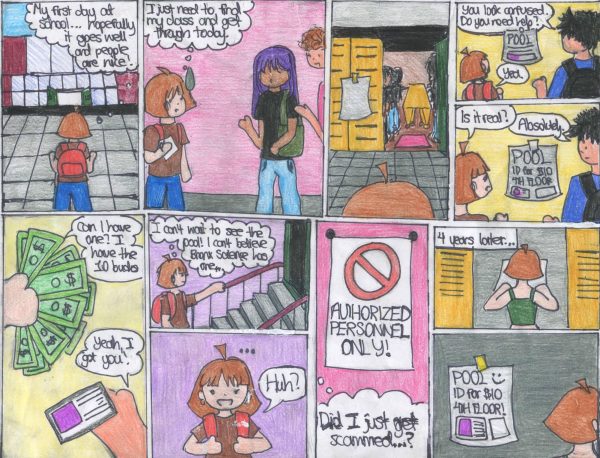The Not So Genuine Holiday Spirit
“The message might be fake, but the deals are real,” said Meridith Mok ’20.
We live in a capitalist society, meaning most things are privately owned and businesses’ main goal is to make money. Yet in this effort to turn a profit, many tend to lose sight of the things that matter most – our very humanity and our culture, of which the holidays are emblematic.
Holidays have always been days of celebration and relaxation, but does this respite from work prevent companies from seeing people as mere consumers whose main role is to help them make a profit?
The answer is no. Holidays in our society are seen as exploitable opportunities to produce more revenue. Companies create special seasonal discounts and employ all sorts of marketing tactics to rope consumers into buying their products with the aim of raking in a massive profit. Advertisements and commercial are among the tactics that put pressure on consumers. “These commercials often make me feel inclined to spend more money on myself and for my friends and family,” said Samantha Cavusoglu ’21.
Slowly, this profit-driven mindset has seeped into the holiday culture. A prominent example of this is Thanksgiving, a humble holiday devoted to expressing gratitude for what we have. Ironically, companies have chosen to juxtapose Thanksgiving with Black Friday – a day on which items are heavily discounted to encourage shopping en masse – and have even created a similar occasion known as Cyber Monday, which made $7.9 billion in 2018.
People are obviously buying into the marketing that companies produce, but why? Lola Berger ’20 explained her perspective. “Companies strive to take advantage of what people are excited for over the holidays, and capitalize on it. People are aware but they don’t really care,” Berger said.
Consumers have learned to live with holidays where companies define what the celebrations entail. This is nothing new: our modern Christmas with a Santa Claus dressed in a red and white suit originated from an advertisement for Coca-Cola in 1920. This advertisement has been so thoroughly ingrained in our culture that our portrayal of the holidays is not complete without a Santa dressed in red and white, showing just how much holidays are tied to our country’s capitalist roots.
“Companies strive to take advantage of what people are excited for over the holidays, and capitalize on it. People are aware but they don’t really care,” said Lola Berger ’20.
The dependency of holidays on materialism also manifests in tangible issues. Encouraged by discounts and marketing, many people buy cheap things that they do not necessarily need, causing a never-ending process of more cheap items to be manufactured, which are only so cheap because of the exploited low wage workers who create them. On top of that, consumers hardly use their cheap purchases before disposing of them, explaining the 25% increase in household waste during the time between Thanksgiving and New Year’s Day.
Holidays are exploited in every sense, breaking them further from their meaning, which is why Meridith Mok ’20 said, “Holidays should be about spending time with friends and family,” rather than what it is today. As we continue to buy into advertisements and willingly give our money to ethically questionable companies, we allow ourselves to drift further and further away from that ideal.
But it does not have to be this way. It is important to remember that consumers hold the power when it comes to controlling the narrative of holidays, but in order to fully use this power, it is necessary to acknowledge it. Without the consumer’s money, companies lose their control, so it becomes the responsibility of the people to decide for themselves if this is the route they want to continue to live on. By investigating into the companies, there is a chance to make sure their business is aligned with their values, and only then can the true meaning of holidays flourish again.
Ula Pranevicius is an Editor-in-Chief for ‘The Observatory’ as well as a Senior Staff Reporter for ‘The Science Survey.’ Ula enjoys interviewing...











